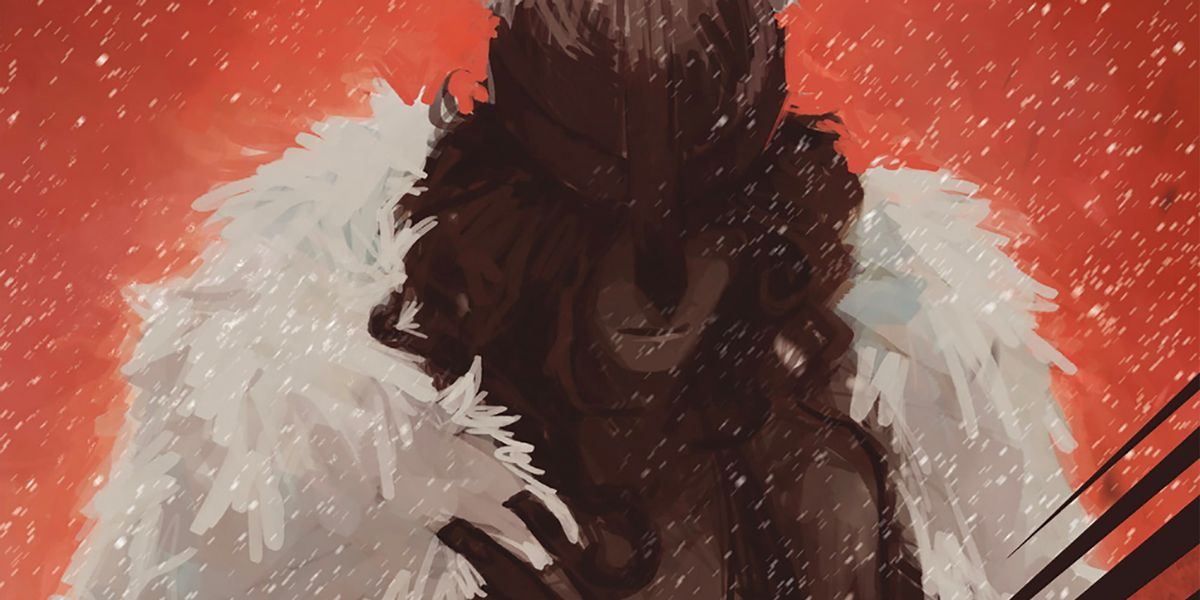The world of pop culture is awash in Vikings these days. From streaming television shows to manga, those nefarious Norse are back in vogue.
But if you only have time for one set of Vikings in your life, make it Natasha Alterici’s graphic novel series Heathen. The third and final volume of this brilliant series, which centres on a lesbian Viking who’s got it in for Odin and the patriarchy, recently hit the shelves. It’s a fitting and action-packed ending to a gorgeously produced series.
What distinguishes Heathen from the broader pack of Viking neologisms is, first of all, its upbeat and inspirational side. Much of the modern Viking fare is grim stuff, full of blood-soaked trips set in miserable, dark and hopeless times. Not so Heathen. Plucky heroine Aydis has been expelled from her village after getting caught making out with another girl. Rather than wallow in self-pity or join a random band of mercenaries, she pursues her warrior calling by making it her personal quest to take on the structures of oppression.
She neither regrets nor hides her love of other women, confronting homophobia in other villages through which she passes (and dispelling misogynistic witch hysteria at the same time). Ultimately, she sets forth on a quest to find, free (and wed) a mythical Valkyrie imprisoned by the wrath of Odin, father of the Norse gods. This goal turns into a feminist-fuelled determination to overthrow Odin and all the oppressions he represents.
(Amazon)
Heathen is fundamentally a tale of redemption, in which justice is restorative rather than delivered at the point of a sword (although swords, spears and arrows feature in plenty). Odin wallows alone and miserable in his dark throne chamber, convinced that the strict, hierarchical laws he has imposed on the land, and the cruel and impartial punishment he inflicts in enforcing those laws, are necessary to prevent the human world from collapsing into anarchy. Imperfect as they may be, they are necessary to prevent worse outcomes, he believes.
There’s a clear hint at the dilemmas of contemporary life – at what point do imperfect laws and the structures developed to enforce them, do more to oppress than to protect? And at what point do those committed to serving them decide that it’s a higher calling to overturn outdated laws and replace them with untested but more progressive alternatives? This is the dilemma grappled with not only by Heathen’s human protagonists, but by its pantheon of deities as well, who also find themselves divided by the increasingly oppressive outcomes of impartial justice.
What also renders Heathen distinct from so many other Viking tales – and more historically accurate, as well – is the remarkable diversity Alterici represents in its pages. Recent research reveals that the Viking world was an incredibly multicultural and multiracial one, a far cry from the outdated mythos of a homogenously white-skinned, blue-eyed, blonde-haired race of male warriors. Heathen is populated by people from all over the world – former slaves and their descendants, traders, immigrants and more. There are not just white but powerful Black women warriors of all shapes and sizes; Aydis encounters a boatful of former slaves-turned-warriors plying the seas and rescuing others in need. A growing body of work reveals that the diverse, multicultural portrayal of northern Europe is more in tune with the historical reality.
The gods and goddesses are delightfully wrought characters as well. Freyja, put in charge of the Valkyries after the imprisonment of wayward Valkyrie commander Brynhild, has turned her corner of Valhalla into a bit of a love hotel. (This is not only the queerest Viking comic you’ll encounter, but is pleasantly sex-positive as well.) Ruadan, the trickster, is notable for his ambiguous morality and very human sense of remorse.
(Amazon)
At the same time, Alterici weaves a delightful wealth of Norse mythology into her tale. The two spirit wolves Skoll and Hati, intent on their quest to capture and devour the sun and moon, are truly delightful, and Aydis’ talking horse Saga is a treat as well. Alterici largely focuses on lesser known figures of the Norse pantheon, neatly sidestepping the disaster which Marvel and D.C. have made of the subject.
It’s truly a shame Heathen ran so short and ended so quick (there’s a particularly fast pace to wrapping up plot threads in Volume Three), but Alterici’s delightful take on a Viking saga deserves a wide readership. It’s a smart, funny, feminist, queer and sex-positive take on the Viking world; one with a wide cast of diverse and endearing characters.
The art is attractive as well, and matches the tone of the book perfectly. Delivered in Alterici’s sparse, angular style, its characters are delightfully expressive and its backdrops evocative. Alterici ran into trouble with her wrist partway through the series, and the very capable Ashley Woods took over artwork for the final volume.
Heathen is a must-read for comics (and mythology) lovers of all sorts and those in quest of superb queer and feminist comics in particular. Alterici has single-handedly redeemed the disaster that pop culture has been making of Norse mythology. Her creative genius struck gold with Heathen, and readers sorry to see this series end will be eagerly await what she does next.
 (Amazon)
(Amazon)
Works Cited
Downham, Clare. ” Vikings were never the pure-bredpure-bred master race white supremacists like to portray”. The Conversation. 28 September 2017.
Kim, Dorothy. ” White Supremacists Have Weaponized an Imaginary Viking Past. It’s Time to Reclaim the Real History”. Time. 15 April 2019.




